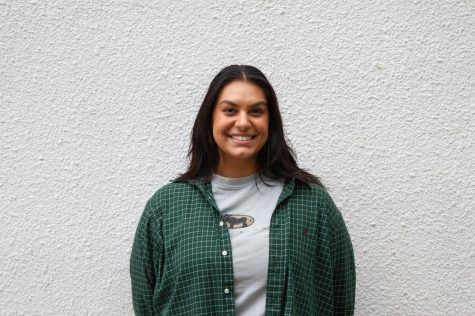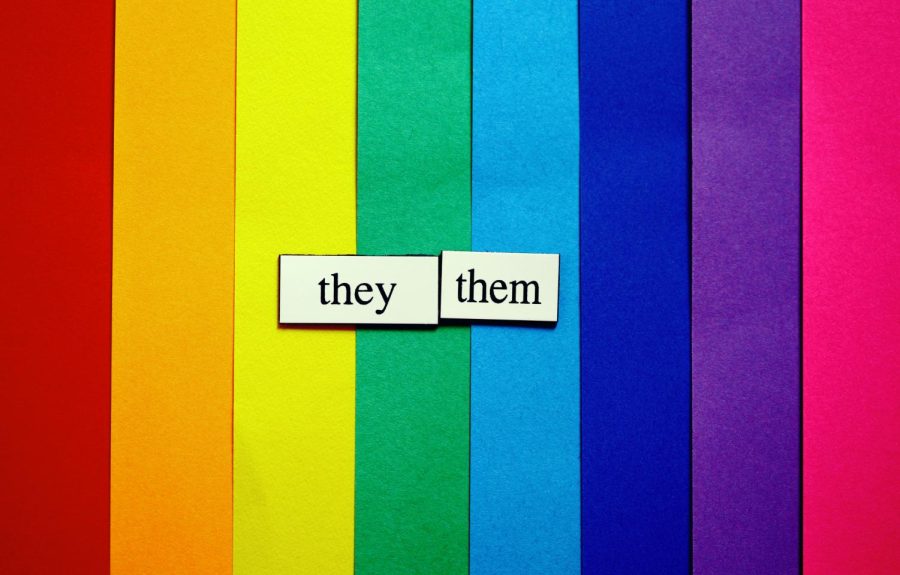Pronouns: they matter
She/they
“It is not she or they, it is she and they.”
Rosa Gómez: she/her/hers, they/them/theirs.
They, them, theirs.
A person’s gender identity cannot be encapsulated in just one word, but respecting someone’s choices as to how they want to be referred to can make existing in this binaried society, just a little bit easier.
Beyond pronouns, as they are just one facet of this, working towards changing your mindset to see beyond just “girls and boys” or “men and women.”
To wake up each day and feel almost genderless has been a learning experience to accept the world the way it is, and to accept myself the way I am.
To say “I am non-binary” means I have days where head-to-toe, I am made of solely body dysmorphia. I get tired of being seen as a woman. I get tired of people seeing me and having a set of preconceived notions about who I’m supposed to be — what I’m supposed to be.
Other days, I wake up and feel gloriously feminine. I love the body I’m in, the experiences it has brought me and the purpose it has served me. It feels powerful to say that I am a daughter and a sister.
I exist amongst a world of binaries. To just exist as myself, is a defiance in and of itself.
I live in a world in between ‘she’ and ‘they.’ Honoring both sets of pronouns has allowed me to step into a new version of myself, where I can affirm the many layers and aspects of my identity.
I do not prefer one set of pronouns over the other, because my identity is not a preference in itself. It is who I am.
It is not she or they, it is she and they.
Regardless of how I choose to present myself, it does not change how I want people to see me. I do not have to subsist as the model of androgyny for my identity to be respected.
I can wear a dress, heels and a full face of makeup and be more in touch with my non-binary identity than ever before. Because, after all, gender is a social construct; so why should we be assigning labels to fashion, mannerisms and lifestyles.
I can be in touch with what it means to be a woman and still embrace the fact that I don’t have to be just a woman. I can be all of what I am meant to be: a person.
A person existing authentically, fully and who is trying to ascend beyond a colonized mindset.
I love to hear myself referred to with she and they pronouns; I can simultaneously be both.
It’s important to reflect on who you would be without the influence of a western society. Take away what has been deemed normal and resist the rules placed upon us.
We can exist fluidly in a way that allows us to expand beyond the gender binary. This fluidity recognizes the intersectionality in our identities; it affirms our wholeness and begins to break us free of the cisgendered shackles.
Gómez can be reached at gomezrd4749@uwec.edu.

Rosa Gómez is a second-year political science and journalism student. This is her first semester on The Spectator staff. She enjoys rainy days, reading and all things social justice!



Josh • Nov 18, 2021 at 4:58 pm
Hey, shawty! You have done it again, constantly raising the bar for all of us and doing it flawlessly. I’d say I’m surprised, but I know who you are. I’ve seen it up close and personal. Shawty, you make me so proud.